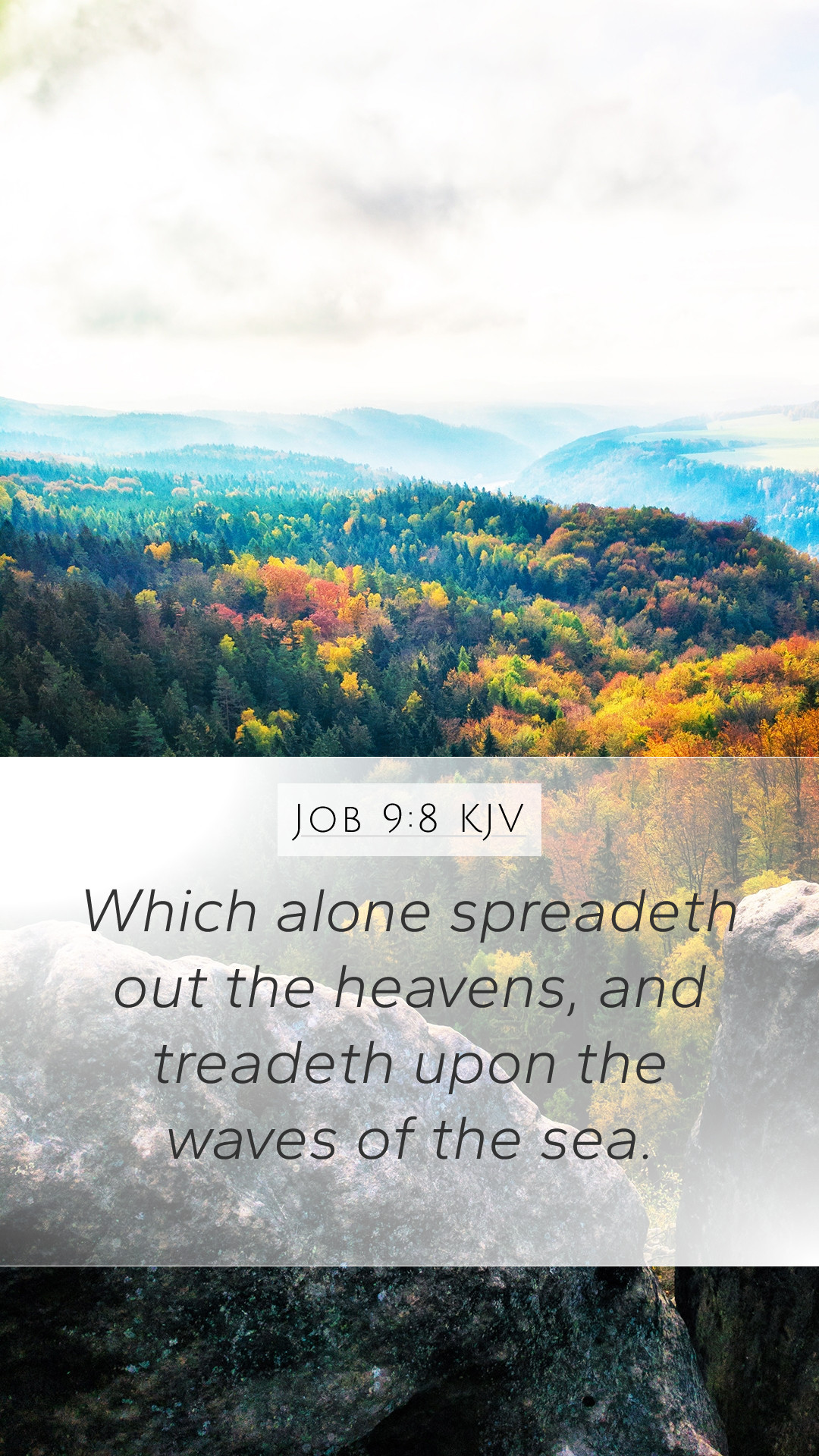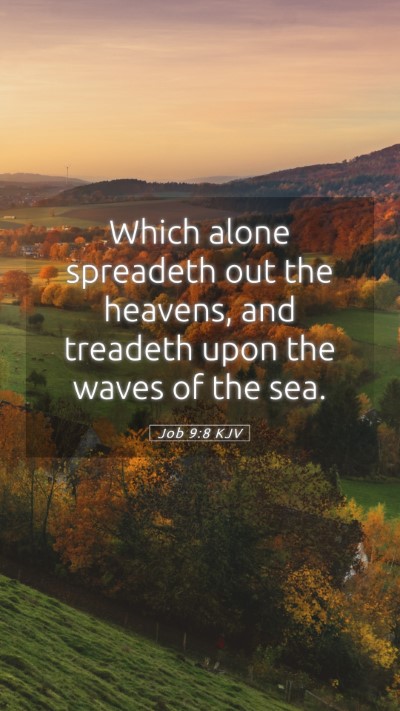Understanding Job 9:8
Job 9:8 states: "Which alone spreadeth out the heavens, and treadeth upon the waves of the sea." This verse encapsulates a profound theological insight into God's sovereignty and power over creation. Below, we explore the meanings and interpretations of this scripture utilizing insights drawn from public domain commentaries by Matthew Henry, Albert Barnes, and Adam Clarke.
Summary of Interpretations
- God's Sovereignty: This verse highlights God as the sole creator and sustainer of the universe. As noted by Matthew Henry, God's authority is established not only through creation but also in managing the natural order of everything, which emphasizes His unmatched power.
- The Authority over Nature: Albert Barnes observes that the imagery of God “treading upon the waves of the sea” symbolizes His control over chaotic forces. This demonstrates that even the most tumultuous aspects of creation are under His dominion, echoing themes of peace amidst chaos.
- The Majesty of God: Adam Clarke points out that the act of spreading the heavens reflects the breath of the Almighty. The vastness of the skies serves as a humbling reminder to humanity of the grandeur and majesty of God.
Diving Deeper into the Text
This verse can be understood through several layers that enrich our Bible verse understanding:
- Creation and Its Significance: The opening words, referring to God's act of spreading the heavens, call to mind both the literal creation narrative found in Genesis and the intricate, sustaining relationships of all things.
- Human Perspective: The recognition of God’s authority is crucial; Job’s words express both an acknowledgment of human limitations facing divine omnipotence and a yearning for understanding amidst suffering.
- Literary Structure: The verse forms part of a broader discourse where Job grapples with his suffering. The juxtaposition of divine power against human suffering raises vital questions about justice, suffering, and God’s nature.
Cross References
This verse relates to several others that further illuminate its meanings:
- Psalm 104:2 - "Who coverest thyself with light as with a garment: who stretchest out the heavens like a curtain."
- Isaiah 40:22 - "It is he that sitteth upon the circle of the earth, and the inhabitants thereof are as grasshoppers."
- Proverbs 8:29 - "When he gave to the sea his decree, that the waters should not pass his commandment."
Application and Implications
Understanding this scripture, and indeed the broader context of Job, invites reflection on several themes:
- The Hope in God’s Sovereignty: Despite circumstances, believers are reminded that God is in control. This sovereignty offers peace and hope in times of despair.
- The Need for Trust: In recognizing our limited understanding and God’s supreme power, we are called to trust in His plans, even when we cannot see the full picture.
- The Importance of Context in Scripture Interpretation: The broader narrative of Job illustrates that life may bring suffering; thus it’s critical to explore historical context for Bible study insights.
Conclusion
Job 9:8 serves as a profound reminder of God's unmatched power and the cosmic perspective from which we should view our lives. By employing diligent Bible verse commentary and scripture analysis, we gain clearer insights into how to interpret and apply God's Word. This understanding enriches our personal and communal faith journeys, aligning with our search for meaning and application in the Scriptures.
Keywords for Further Study
- Bible verse meanings
- Bible verse interpretations
- Understanding Scripture
- Historical context of Bible verses
- Applying Bible verses to daily life


